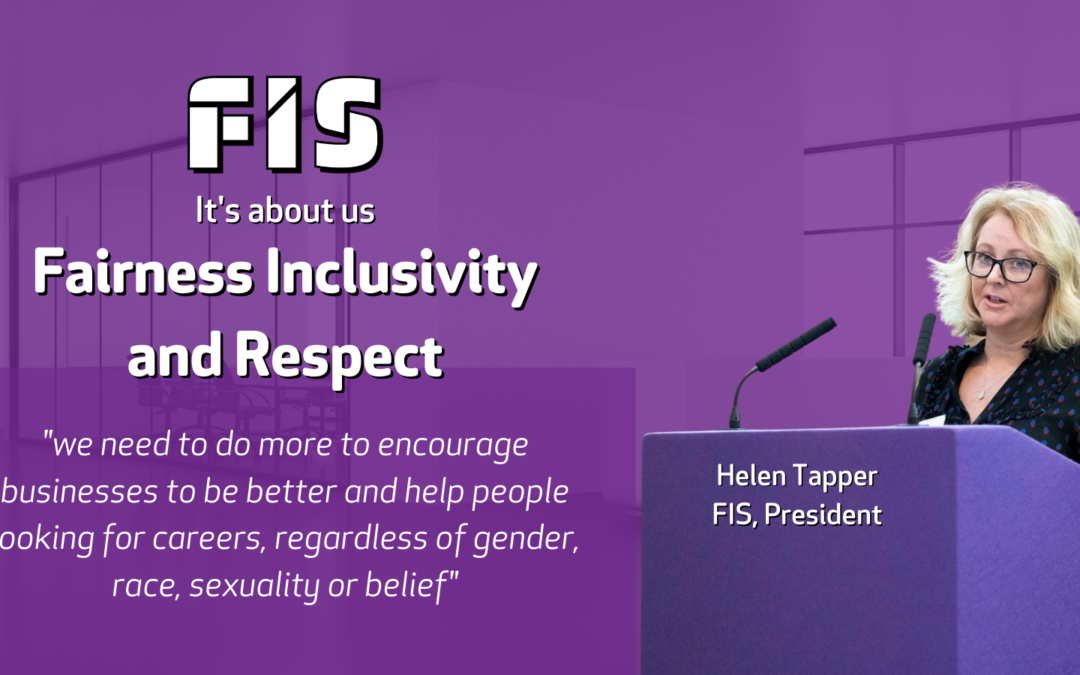
by Iain McIlwee | 12 Mar, 2021 | Main News Feed
Following the reopening of schools and colleges on 8 March, the Department for Education (DfE) has confirmed that on‐site training can resume for students of all ages in the following further education (FE) settings if a provider follows the operational guidance:
• Sixth form colleges
• General FE colleges
• Independent Training Providers (ITPs) ‐ defined as organisations that receive Education and Skills Funding Agency (ESFA) formula funding for the provision of 16 to 19 education
• Designated institutions
• Adult and Community Learning Providers (ACLPs)
• Special post‐16 institutions.
The National Construction Colleges in Bircham Newton (East) and Erith (South) are gradually reopening, with their apprentices due to return from 22 March. All FE providers should continue to follow pre‐COVID‐19 guidance for adult students and “judge the right balance between on‐site and remote delivery in order to provide high quality education and training”.
Apprenticeship providers should also read the current apprenticeships guidance, which confirms that FE apprentices may now return to training and assessment in educational settings, in addition to the training and assessment that is currently permitted in the workplace where the apprentice cannot work from home and the workplace is COVID‐19 secure.
There has not been any further guidance issued about resuming face‐to‐face training in the workplace. Companies will need to determine if any training required can be undertaken remotely or is essential at this time, as they may be required to explain how they are complying with the current ‘stay at home’ restrictions.

by Iain McIlwee | 9 Mar, 2021 | Main News Feed
During the COVID-19 pandemic, businesses have been encouraged to follow government guidance and ensure workplaces are COVID-19 secure. As the regulator, the Health & Safety Executive (HSE) is tasked with enforcing these measures and has been visiting workplaces to confirm that they are in place. Your premises may therefore be visited by contractors working on behalf of the HSE.
These contractors will have appropriate ID and authorisation letters that empower them to undertake visits and spot checks. They should ask for someone in authority on site and will then ask questions from the list below. This latest piece of guidance from the CICV (supported by FIS) is a handy checklist of questions to help businesses prepare for spot checks and health and safety inspections.
You can download the checklist here

by Clair Mooney | 9 Mar, 2021 | Insurance, Main News Feed
Tax expert Paul Mason from Markel talked through the changes, how to ensure your business is compliant and vitally how you should be communicating with any contractors working through your business, whether they be trade based labour only subcontractors, surveyors, engineers or IT contractors.
The off-payroll working rules (IR35) apply to any worker/contractor that contracts through their own limited (personal services) company. The rules are designed to ensure that workers, who HMRC assert should be classed an employee, pay broadly the same tax and National Insurance contributions as employees.
From 6 April 2021, responsibility to identify the status of the worker and ensure tax is paid is shifting to the company engaging the contractor. This applies to medium or large-sized private businesses, essentially all companies who meet two of the following three criteria:
• turnover is greater than £10.2m a year;
• balance sheet assets are greater than £5.1m
• have more than 50 employees

by Clair Mooney | 9 Mar, 2021 | Main News Feed
To mark Women in Construction Week and International Women’s Day 2021, FIS has launched a new Fairness, Inclusivity and Respect (FIR) Toolkit – to support members in their focus on fairness, inclusivity and respect in their workforce.
The FIS FIR Toolkit draws together a wide variety of tools and training available from across the construction sector making it easier for members to encourage equality, diversity and inclusion in their workforce. It identifies where legal responsibilities lie, but also helps to highlight and support companies in managing the pre-qualification process and ensuring that FIR processes can be core to their business.
Commenting on the launch of the toolkit, FIS CEO Iain McIlwee said: “The Toolkit is part of a renewed effort within FIS to support individual businesses, to highlight and celebrate diversity within the workforce and to ensure that the FIS network works for all individuals. It also guarantees that through better support and communication, we strive to ensure that the FIS community is open and supportive of all. The focus mirrors FIS core communication and recruitment campaign: ‘It’s about you’ using the strapline, ‘It’s about us’.”
FIS President and Operations Director at Tapper Interiors, Helen Tapper stated: “In my 37 years in the industry I have at times felt like a woman in a man’s world – that is no longer acceptable. Things have improved over the years, but we cannot kid ourselves that we are anywhere near where we need to be – old habits die hard and hold us back. With immigration policies likely to lead to short term labour issues, it has never been more important to renew our efforts – we are missing out on huge swathes of potential.”
“As FIS President, I committed to ensuring that we stepped up efforts in this area – we had the Women in Fit-out initiative, but we need to do more to encourage businesses to be better and help people looking for careers recognise that they have a home and opportunity in our sector regardless of gender, race, sexuality or belief. Central to the ‘It’s about us’ focus is this new toolkit which signposts tools and celebrates diversity within the FIS community. I know in our community there are positive role models and great stories that will inspire others, but we need to do more to tell them. Therefore I am reaching out to people in our community, particularly those in the early stages of their career who sometimes feel on the edge or in the minority to tell their story, to help us understand their struggles and to learn how we can better support them and use their stories to inspire others. Women in Construction Week is the ideal time to launch this work and draw on the theme of International Women’s day that we “Choose to Challenge” and start to encourage new habits.”
To access click FIS Inclusivity Toolkit – FIS (thefis.org)

by Clair Mooney | 9 Mar, 2021 | Main News Feed
The Construction Leadership Council is calling on businesses from across the industry to play their part in securing net zero carbon construction 2050. In this year of the UK hosting COP 26, it is imperative that the construction sector steps up to the challenge and supports the Race to Zero.
Today the CLC announces CO2nstruct Zero, a cross-industry change programme to drive carbon out of all parts of the construction sector, from manufacturing and design to construction and operation of assets.
It is intended to promote the high-level priorities that the industry must work on to reduce carbon, thereby playing our part in achieving the UK Government’s objective of net zero for the whole economy by 2050.
CO2nstruct Zero builds upon the way that the industry united last year as a single force to tackle Covid-19, ensuring a consistent approach is taken by the whole sector while avoiding duplication of work.
CO2nstruct Zero’s priorities are:
Transport
➢ Accelerating the shift of the construction workforce to zero emission vehicles and onsite plant
➢ Maximising use of Modern Methods of Construction and improved onsite logistics, reducing waste and transport to sites
➢ Championing developments and infrastructure investments that both enable connectivity with low carbon modes of transport and design to incorporate readiness for zero emission vehicles
Buildings
➢ Work with Government to deliver retrofitting to improve energy efficiency of the existing housing stock
➢ Scale up industry capability to deliver low carbon heat solutions in buildings, supporting heat pump deployment, trials of hydrogen heating systems and heat networks
➢ Enhancing the energy performance of new and existing buildings through higher operational energy efficiency standards and better building energy performance monitoring
Construction Activity
➢ Implementing carbon measurement, to support our construction projects in making quantifiable decisions to remove carbon
➢ Become world leaders in designing out carbon, developing the capability of our designers and construction professionals to develop designs in line with circular economy – reducing embedded and operational carbon, shifting commercial models to incentivise and reward measurable carbon reductions.
➢ Support development of innovative low carbon materials (prioritising concrete and steel), as well as advancing low carbon solutions for manufacturing production processes and distribution
The CLC is now inviting companies and organisations from across the industry to link up with CO2nstruct Zero, getting involved with its delivery. The CO2nstruct Zero is not to develop new solutions or new pathways – there are many groups in the industry well placed to do this, but we believe that the CLC does have a critical role to play in bringing people together to consolidate collective actions and plans for the sector.
An action plan is being prepared, aligned to the 9 priorities, co-ordinating the extensive and exciting work already happening right across the industry, including within the CLC through the Green Construction Board and the Infrastructure Client Group, to develop the solutions, guiding companies on the actions and role that they can play. Organisations can volunteer to help with the development of the action plan by bringing their initiatives to join up, while individual businesses are encouraged to become Business Champions sharing their approach to delivering on the 9 priorities and contributing to the Race for Zero.
The action plan will also consider changing skills needs and how these can be addressed to provide a workforce that can achieve net zero.
Construction Leadership Council chair Andy Mitchell CBE said: “There is no bigger challenge that our industry faces than the need to decarbonise. We need to pull the whole industry together, letting everyone know what they can do to reduce carbon, while unlocking strategic changes that will set the sector on a new course towards net zero”.
Construction Minister Rt Hon Anne-Marie Trevelyan said: “The UK was the first major economy to set our commitment to eliminate our country’s contribution to climate change into law. But we can only do that by working with industry to make practical changes to secure a better low-carbon future.
“I am delighted that, through CO2nstruct Zero, the construction sector is showing the unity and leadership to make this happen and ensure we build back greener.”
The Construction Leadership Council will be identifying measurable targets to show how the industry is making progress towards Net Zero. CO2nstruct Zero will act as the focal point of engagement for the industry with Government in preparation for November’s COP26 climate change conference in Glasgow.

by Iain McIlwee | 9 Mar, 2021 | Main News Feed
All businesses in England are now able to sign up to the government’s free COVID-19 workplace testing programme.
As part of the government’s roadmap to cautiously lift restrictions, businesses of all sizes, including those with fewer than 50 employees, can register from today to order free lateral flow tests for their employees.
Around 1 in 3 people with coronavirus don’t have symptoms, which means they could be spreading the virus in workplaces without knowing. Rapid testing detects cases quickly – in under 30 minutes – meaning positive cases can isolate immediately, breaking chains of transmission. Regular testing could be the difference between a workplace being able to stay open and operational, or needing to close due to a COVID-19 outbreak. It will form a crucial part of the government’s plan to gradually and safely ease restrictions as we get back to a more normal life.
So far over 3,500 businesses are signed up to offer workplace testing programmes, and over 14,000 have registered their interest in offering rapid testing, with many already rolling tests out. Businesses have until 31 March to register for the government’s workplace testing scheme, which will remain free until the end of June. All those who can work from home should continue to do so.
Health Secretary Matt Hancock said:
Regular workplace testing is a vital part of our route back to normal life, which is why I’m very pleased that we’re now expanding our offer of free workplace testing to businesses of all sizes, including SMEs.
These rapid tests will allows positive cases of Covid-19 to be caught quickly, which is crucial in helping businesses protect their workplaces and employees as we cautiously lift restrictions.
I urge all businesses to register their interest in the programme before 31 March to help break chains of transmission and keep people safe.
Dr Susan Hopkins, COVID-19 Strategic Response Director to PHE and Chief Medical Adviser to NHS Test and Trace:
Around one in three people who have coronavirus never show any symptoms but may still be infectious. This means they could be spreading the virus without realising it.
Rapid testing can help detect asymptomatic cases quickly, preventing the virus from entering workplaces and stopping outbreaks before they occur.
Combined with other protective measures, rapid testing is a vital tool to help us lower infection rates and ensure that they stay low. If you’re offered a test, please do take it.
Alongside the roll out of the vaccination programme and following the ‘Hands, Face, Space’, regular testing is a vital tool to stop transmission as sections of society are reopened.
The expansion of asymptomatic testing is already well underway in larger companies for those who need to leave home for work. Both private and public sector employers have signed up to provide rapid testing at asymptomatic testing sites, along with a self-test option for those that cannot access a workplace testing site. This includes the UK’s largest employer – the NHS, those working in adult social care, education staff and a wide range of other sectors.
An online portal has been launched for businesses to find out more about offering rapid workplace testing. Businesses will be provided with all the information they need to plan and deliver their testing programme, along with promotional materials.
All local authorities in England are now offering rapid lateral flow testing for small businesses if they can’t offer rapid workplace testing. Businesses can find their local test site online.
Build UK has published a simple guide providing an overview of the LFD testing process and the steps required to set up a testing site.
Visit the FIS COVID-19 Hub here






